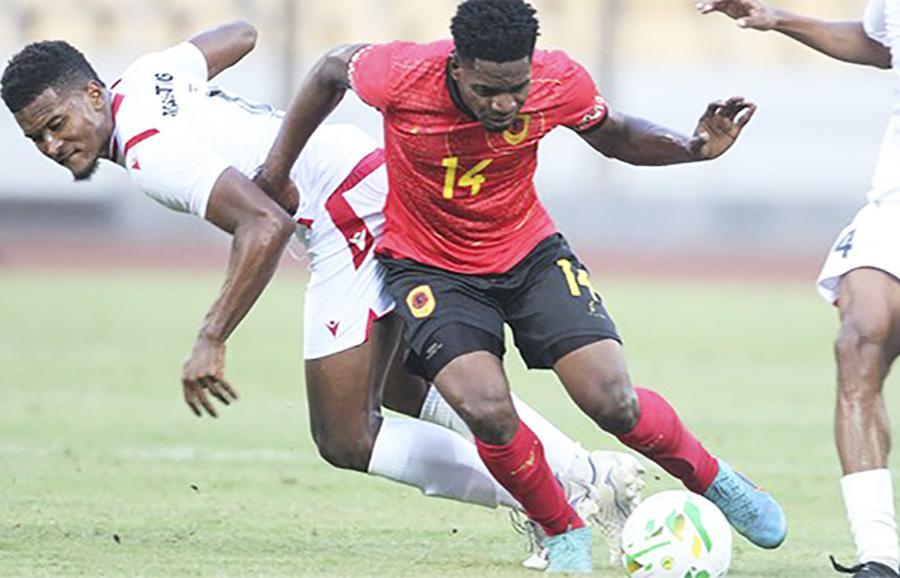Africa-Press – Angola. The African Cup of Nations (CAN), which celebrates its 34th edition, from January 13th to February 11th this year, in Côte d’Ivoire, has been played since 1957 under the aegis of the African Football Confederation ( CAF), also created in the same year, that is, 67 years ago.
As the governing body of continental football, CAF has as founding members the federations of Ethiopia, Egypt, South Africa and Sudan.
CAN’s debut took place in the Egyptian capital, Cairo, instead of Khartoum (Sudan) as initially planned, due to a fire that destroyed the event organization’s offices, which precipitated this change of stage by CAF.
Headquartered in Cairo, CAF currently has 54 national associations as full members, including Angola, representing all independent states in Africa, divided into six geographical zones.
In the first edition of the Nations Cup, only the four founding countries participated, namely Egypt, Ethiopia, Sudan and South Africa. However, the latter was disqualified due to the racial segregation regime in force at the time in its territory.
Thus, as the wars of liberation took place, the tournament began to become more popular, with more nations participating. From the 1960s onwards, countries that gained independence joined the governing body, which in 1972 already had 10 members.
In the following decade, in 1980, a curious fact happened: the Cameroon team reached three consecutive finals, winning two editions and losing one, which marked a certain superiority at the time.
In 1996, Angola’s debut year, South Africa , until then disqualified from participating in the tournament, returned to the competition as host of the 20th edition of which they were crowned champions.
Finally, in 2010, CAF announced a change in the years in which the tournament was held, making it in odd-numbered years, to avoid any possibility of it coinciding with the World Championship. However, it was only since 2013 that all of this was put into practice.
The current continental cup will be played exceptionally in 2024 by decision of CAF, after intense rains were recorded in 2023 between the months of July and August, the initial date for its implementation.
In 2015, civil wars, the Ebola virus and terrorist attacks ended up having a lot of influence on the development of the competition, both in the knockout stages and in the final stages.
Curiosities since the first edition
Egypt was chosen as the venue for the first World Cup. The country was growing a lot at the time, even more so when Gamal Abdel Nasser assumed the presidency a year earlier.
However, focused precisely on this growth and the nationalization of the Suez Canal, the Government of the time thought it best to transfer the event’s headquarters to Sudan, an already independent country.
This first edition was also marked by the disqualification of South Africa, which gave a direct place in the final to the representation of Sudan.
20th edition (1996) – Return of champion South Africa with victory over Tunisia
After decades of sanctions for its segregationist policy, South Africa finally participated in the finals of the African Cup of Nations. He took over the position from Kenya, which he gave up due to financial problems.
In total, there were 15 participating countries, with the debut of Angola, Liberia and South Africa itself, which became champions by defeating Algeria in the final, 2-0, with two goals from Williams.
25th edition (2006) – Egypt again champion with victory over current hosts Côte d’Ivoire
The year 2006 was particularly delicate for Egypt. Then-President Hosni Mubarak faced international pressure for some decisions he made.
In the wake of the victory in the African Cup of Nations, the government declared a national holiday.
26th edition (2008) – Egypt champion with victory over the Cameroon team
The African Cup of Nations was by far the one with the most “historical aspects for the country”: it helped to reconcile segregated ethnicities.
Côte d’Ivoire, in civil war since 2002, called a truce in the conflict to participate in the World Cup. In view of this, he paved the way for a ceasefire.
The peace treaty was signed in 2007, but was ratified three months later, during the African Cup qualifiers.
For the first time in history, enemy armies came together. Drogba, the player who fought most for peace at the time, also scored a goal.
Greatest champions of the African Cup of Nations
The Senegal team, current champion, won the title for the first time in 2021, with a 2-0 victory over Egypt.
The list of greatest champions is led by Egypt, with seven trophies (1957, 1959, 1986, 1998, 2006, 2008 and 2010), followed by Cameroon: 5 titles (1984, 1988, 2000, 2002, 2017), Ghana: 4 titles (1963, 1965, 1978 and 1982), Nigeria: 3 titles (1980, 1994 and 2013), Côte d’Ivoire: 2 titles (1992 and 2015), Algeria: 2 titles (1990 and 2019) and DRC: 2 titles (1968 and 1974).
Countries with one achievement each include Zambia: (2012), Tunisia (2004), Sudan (1970), Ethiopia (1962), Morocco (1976), South Africa (1996), Congo (1972 ) and Senegal (2021).
Africa Cup of Nations 2023: changed dates and changes
The venue for the 34th edition of the Africa Cup of Nations, taking place from January 13th to February 11th, in Côte d’Ivore was supposed to take place in 2023, but heavy rains in the chosen period led to its postponement to the beginning of 2024.
These changes have been occurring since 2018, when the entity itself changed the event dates. The tournament is traditionally held between June and July.
Cameroon also requested changes in relation to rainfall in 2021 and was granted at the time.
This will be the second time that Côte d’Ivoire has hosted the competition. The first was in 1984.
For More News And Analysis About Angola Follow Africa-Press






